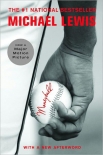Moneyball by Lewis, Michael (books to read in your 30s TXT) 📗

Book online «Moneyball by Lewis, Michael (books to read in your 30s TXT) 📗». Author Lewis, Michael
The space around Billy’s rage is perfectly still. Paul DePodesta stares quietly into his computer screen. Paul’s seen Billy in this state often enough to know that it’s not something you want to get in the middle of. Paul knows that Billy, to be Billy, needs to get worked up. “I think Swisher will get to us,” Paul says quietly, “but I’m not going to say that right now.”
Finally the miserable silence is punctuated by the ringing of scouting director Erik Kubota’s cellphone—only instead of ringing it plays, absurdly, Pachelbel’s Canon. Erik snatches it quickly off the table. “Oh, is that what it is?” he says into the phone, in a clipped tone, and hangs up. The draft room has become a symbolist play.
Billy’s phone rings. It’s Kenny Williams again. Williams is of no current interest to Billy. Nothing the White Sox do will alter Billy’s chances of getting Swisher.
“What’s up Kenny,” Billy says rather than asks.
What’s up is that Kenny has just heard that Billy isn’t getting Swisher, and fears that Billy will take his first choice. Billy doesn’t have time for other people’s fears just now; if he’s going to be miserable everyone else is going to be, too. “You were going to get Blanton,” he says. “But you ain’t getting him now.”
He hangs up and calls Steve Phillips again. That’s his style: if he doesn’t get the answer he wants the first time, he calls again and again until he does. To come between him and what he was after at just that moment would have been as unwise as pitching a tent between a mother bear and her cub. Phillips answers on the first ring.
“Hear anything?” Billy asks.
Pause. Phillips says he hasn’t.
“Yeah,” says Billy, glumly. He begins to sympathize with Phillips for getting stuck with Swisher. Then Phillips says something new, that causes Billy’s mood to shift. Frustration is shoved aside by curiosity.
“Oh really?”
Pause.
“Well, that’s a fucking light at the end of the fucking tunnel.”
He clicks off and turns to Paul. “He says if Kazmir gets to him he’ll take him.” Scott Kazmir is yet another high school pitcher in whom the A’s haven’t the slightest interest. Billy’s so excited he doesn’t even bother to say how foolish it is to take a high school pitcher with a first-round pick. Everyone looks up at the white board and tries to figure out if Kazmir, the Mets’ new sixth choice, will get to the Mets. He might; no other team has said definitely that they will take him. But then no one has any idea what either the Detroit Tigers or the Milwaukee Brewers, who pick seventh and eigth, intend to do. Something not terribly bright, it was a fair bet, if they just continued doing what they had done in the past. And that was a problem: picking a high school pitcher like Kazmir is exactly the sort of not-so-bright decision both franchises had a knack for making.
“Fielder could help us here,” says Chris Pittaro, finally.
Fielder is the semi-aptly named Prince Fielder, son of Cecil Fielder, who in 1990 hit fifty-one home runs for the Detroit Tigers, and who by the end of his career could hardly waddle around the bases after one of his mammoth shots into the upper deck, much less maneuver himself in front of a ground ball. “Cecil Fielder acknowledges a weight of 261,” Bill James once wrote, “leaving unanswered the question of what he might weigh if he put his other foot on the scale.” Cecil Fielder could have swallowed Jeremy Brown whole and had room left for dessert, and the son apparently has an even more troubling weight problem than his father. Here’s an astonishing fact: Prince Fielder is too fat even for the Oakland A’s. Of no other baseball player in the whole of North America can this be said. Pittaro seems to think that the Detroit Tigers might take Fielder anyway, for sentimental reasons. And if the Tigers take him, they trigger a chain reaction that ends with the Mets getting one of their first six choices.
Before anyone has a chance to figure out whether Kazmir will get to the Mets, the draft begins. As it does, the Oakland A’s owner, Steve Schott, enters the room, followed shortly by the A’s manager, Art Howe. Howe stands in the back of the room with his jaw jutting and a philosophical expression on his face, the way he does in the dugout during games. It is one of the mysteries of baseball that people outside it assume the manager is in charge of important personnel decisions. From the start to the end of this process Howe has been, as he is with all personnel decisions, left entirely in the dark.
The A’s scouting director, Erik Kubota, takes up his position at the speakerphone and tells everyone else to shut up. Everyone in the draft room is about to learn just how new and different is the Oakland A’s scientific selection of amateur baseball players. The A’s front office has a list, never formally written out, of the twenty players they’d draft in a perfect world. That is, if money were no object and twenty-nine other teams were not also vying to draft the best amateur players in the country. The list is a pure expression of the new view of amateur players. On it are eight pitchers and twelve hitters—all, for the moment, just





Comments (0)